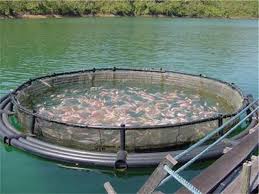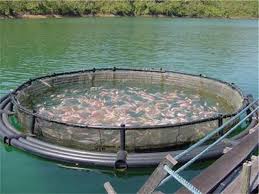
Alleging that the process of production of genetically modified salmon eggs would risk a “huge live experiment” with the genetic makeup of all wild Atlantic salmon, a number of environmental groups are taking the Canadian government to court in an attempt to halt the process.
Genetically fertilized salmon eggs from Canada have been allowed to be produced by a US firm. The plan is to ship the fertilized eggs to Panama, where they will be grown in the hope that the fish will be given approval for human consumption in the US and Canada.
The genetically modified fish would be kept in special disease- and antibiotic-free conditions and that the genetically modified fish pose no threat to the environment was claimed by AquaBounty Technologies which is based in Massachusetts.
The carbon footprint of the genetically modified salmon fish would be reduced by up to 25 times as the modified fish can grow to the size of wild salmon with 75% less feed, AquaBounty claims.
Despite the assurances, the environmentalists are hell bound to file a suit at Canada’s federal court with the argument that the Canadian government was wrong to approve the production of the eggs in Prince Edward Island and that there is a real risk of mixing between the GM salmon and wild fish.
“This will potentially be the world’s first genetically modified fish available for human consumption and it’s clear the GM industry wants to get other animal products approved after this,” said Mark Butler, campaigner at the Ecology Action Centre, which is bringing the case alongside the Living Oceans Society.
“We think the measures to avoid mixing with the wild Atlantic salmon are inadequate and once there is genetic contamination the wild salmon is forever changed. It would be a huge live experiment and we wouldn’t know the consequences,” Butler said.
The GM fish could be released from their land-based hatcheries into the ocean due to hurricanes, human error or equipment failure, Butler said. He added that treatment to ensure the GM salmon cannot reproduce is not always effective.
The permission granted by the Canadian government to AquaBounty was far wider than the initial conditions that the company was assessed on and that this step would potentially open the way for other companies to produce GM fish eggs in Canada, alleges the environmentalists’ court case. The environmentalists allege that the Canadian government has breached its own environmental laws by providing AquaBounty the permit.
Since 1995, the US company has been trying to secure permits and approvals for producing and selling GM products. AquaBounty’s chief executive, Ron Stotish, said the court case is “completely without merit”.
A spokeswoman for Environment Canada, the government’s environmental agency, would not comment on the case.
There have been wide spread opposition to GM food in different parts of the world with the Scottish government disallowing GM crops last month and activists in India this week criticized reported plans to produce GM mustard in the country.
(Source:http://indiatoday.indiatoday.in & www.theguardian.com)
Genetically fertilized salmon eggs from Canada have been allowed to be produced by a US firm. The plan is to ship the fertilized eggs to Panama, where they will be grown in the hope that the fish will be given approval for human consumption in the US and Canada.
The genetically modified fish would be kept in special disease- and antibiotic-free conditions and that the genetically modified fish pose no threat to the environment was claimed by AquaBounty Technologies which is based in Massachusetts.
The carbon footprint of the genetically modified salmon fish would be reduced by up to 25 times as the modified fish can grow to the size of wild salmon with 75% less feed, AquaBounty claims.
Despite the assurances, the environmentalists are hell bound to file a suit at Canada’s federal court with the argument that the Canadian government was wrong to approve the production of the eggs in Prince Edward Island and that there is a real risk of mixing between the GM salmon and wild fish.
“This will potentially be the world’s first genetically modified fish available for human consumption and it’s clear the GM industry wants to get other animal products approved after this,” said Mark Butler, campaigner at the Ecology Action Centre, which is bringing the case alongside the Living Oceans Society.
“We think the measures to avoid mixing with the wild Atlantic salmon are inadequate and once there is genetic contamination the wild salmon is forever changed. It would be a huge live experiment and we wouldn’t know the consequences,” Butler said.
The GM fish could be released from their land-based hatcheries into the ocean due to hurricanes, human error or equipment failure, Butler said. He added that treatment to ensure the GM salmon cannot reproduce is not always effective.
The permission granted by the Canadian government to AquaBounty was far wider than the initial conditions that the company was assessed on and that this step would potentially open the way for other companies to produce GM fish eggs in Canada, alleges the environmentalists’ court case. The environmentalists allege that the Canadian government has breached its own environmental laws by providing AquaBounty the permit.
Since 1995, the US company has been trying to secure permits and approvals for producing and selling GM products. AquaBounty’s chief executive, Ron Stotish, said the court case is “completely without merit”.
A spokeswoman for Environment Canada, the government’s environmental agency, would not comment on the case.
There have been wide spread opposition to GM food in different parts of the world with the Scottish government disallowing GM crops last month and activists in India this week criticized reported plans to produce GM mustard in the country.
(Source:http://indiatoday.indiatoday.in & www.theguardian.com)





